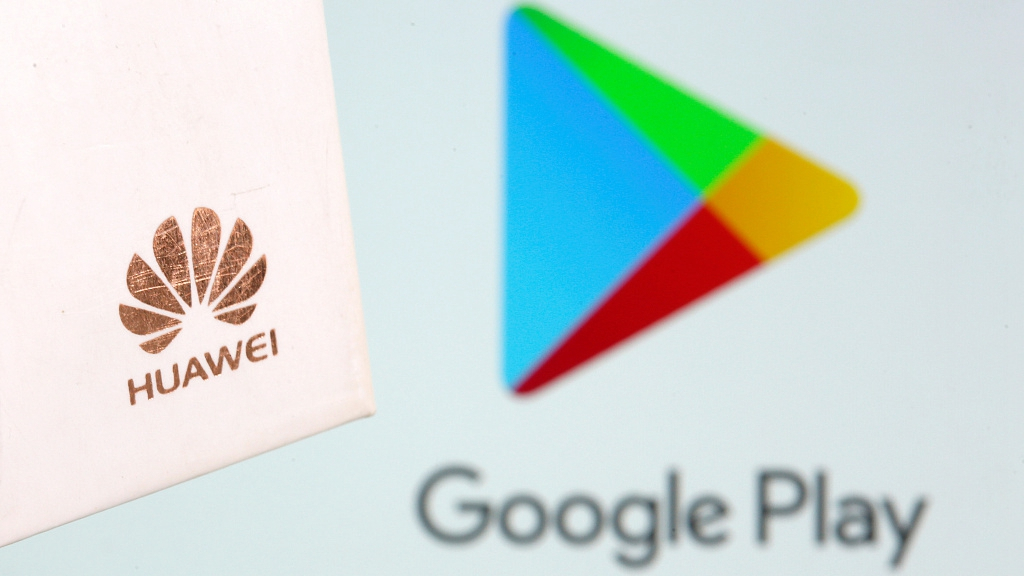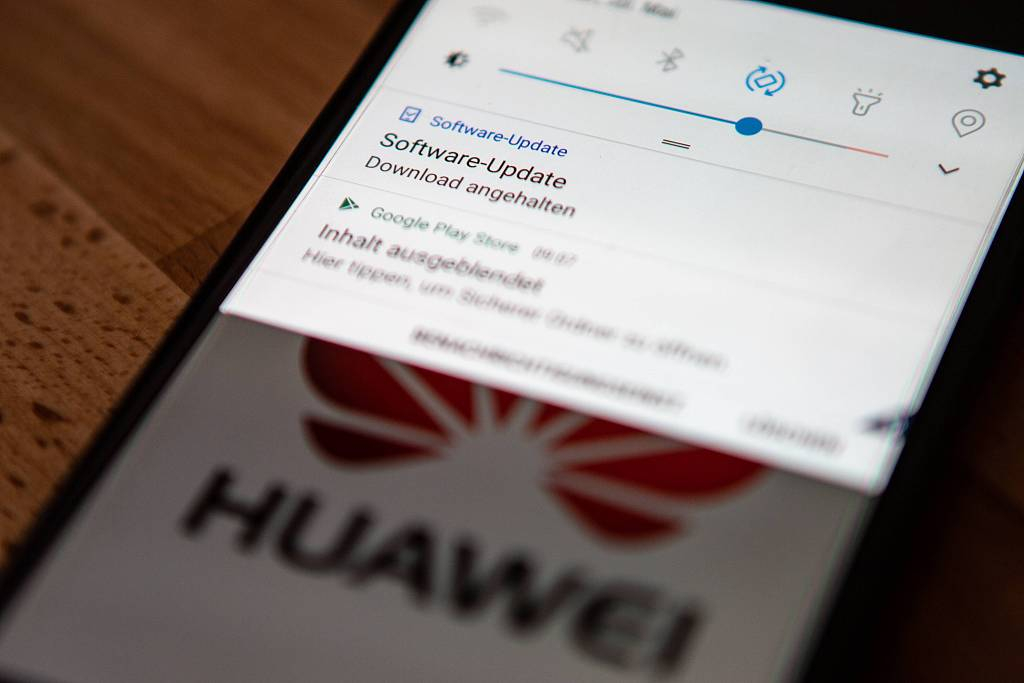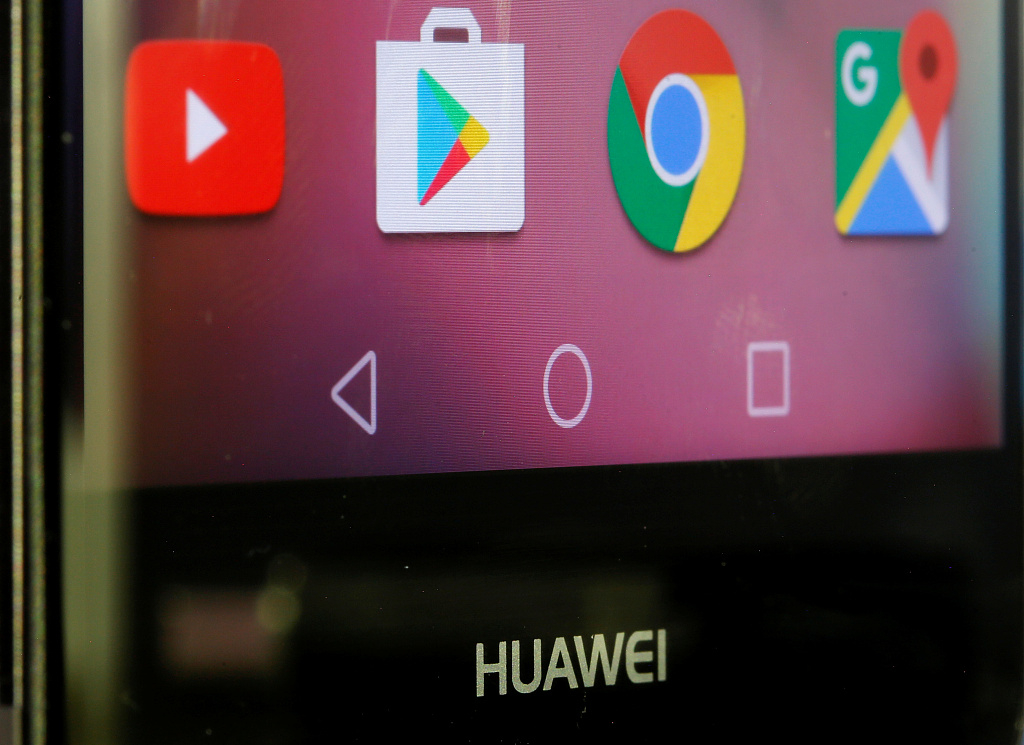
Opinion
12:32, 22-May-2019
Google should not side with White House on Huawei
Victor Oluoch

Editor's note: Victor Oluoch is a journalist with Kenya's Nation Media Group and is currently participating in the China Africa Press Center 2019 program in Beijing. The article reflects the author's opinion, and not necessarily the views of CGTN.
With Google deciding to join the tug of technology supremacy battle between the U.S. and China, now we can say that two world economic growth determinants are concerned with who owns the telecommunications in the current 21st century rather than global growth.
Google claims that it is executing White House's executive order which blacklisted Beijing's tech giant Huawei leading to it to lose Google's security updates and technical support, and any new devices would no longer have apps such as YouTube and Maps. Of course, all these are done following Washington's political theatrics of being scared to lose technology supremacy to developing Asian nation.
These are the pertinent issues surrounding the Sino-U.S. trade friction which has been centered on Huawei because of its leading 5G expertise and since the U.S. has realized that it is losing the battle; it has decided to coax Google to support it in the war.
The latest move puts the current war in an awkward position because the much anticipated win-win attitude of free traders remains a far-fetched ideology in the current market. I can say that the reality is that much of technology ownership is monopolistic owing to barriers to entry there are only a handful of Telco equipment manufacturers, public clouds, mobile OS and search engines out there.

Android Smartphone with Huawei logo in the background and the icon of the Play Store Berlin-Mitte, Germany. /VCG Photo
Android Smartphone with Huawei logo in the background and the icon of the Play Store Berlin-Mitte, Germany. /VCG Photo
With all factors remaining constant, the Sino-U.S. trade conflict will continue irreconcilable tug-of-war which the world needs to accept and look for an alternative as long as it will all about Huawei with the 5G innovation.
Owning that technological wealth is vital for any country to reach the peak of economic growth, both China and the U.S. are not going to relent. For instance, China cannot become rich without becoming a technology, manufacturing and consumer market powerhouse, all at once. And it views with deep suspicion American blocks on wealth transfers. Is not this just a way to keep the country down, to replay the century of humiliation all over again?
As more and more wealth derives from technology, technology and politics will become the bedrock law.
The current war on technology is more disturbing for some people who love great products and would want to see colossal technological advancement for everyone regardless of nationality. But political symbolism is increasingly a language that Silicon Valley and the tech industry have to understand.
But for reasons why Google should not have accepted to join Sino-U.S. wars centered on Huawei because Google and Huawei need each other for their business to thrive globally.
The duo should now be working on how to make some kind of deals to include more Google services on Huawei's Chinese smartphones.
Perhaps Huawei could continue to help Google to gain market share for a Chinese Play Store because currently the third largest smartphone vendor worldwide behind Samsung and Apple is Huawei which has increased its global smartphone market share to 14.7 percent last year, compared with Apple's 14.9 percent and Samsung's at 20.9 percent, according to a report by industry researcher IDC in January 2109.
So, if Google wants to continue to get more into China, then strengthening its partnership with Beijing tech giant remains vital than siding with White House. It is also worth remembering, though, that Huawei is strong in lots of other markets and Google wants everyone it can get.
Huawei also has major credentials in the wireless networking industry, providing equipment for many major carriers across the globe. Even after the claims about Huawei equipment being suspect on political grounds in the U.S., the company is in a strong position.

Google applications are seen on a Huawei smartphone in this illustration taken on May 20, 2019. /VCG Photo
Google applications are seen on a Huawei smartphone in this illustration taken on May 20, 2019. /VCG Photo
It is another likely attraction for Google. We have seen some interest in this with Google launching Project Fi in the past. It makes some sense for Google to want to drive the Internet further, delivering better speeds and a better experience, or taking it to areas that have sub-standard service or no service at all. After all, people can't enjoy Google services without a decent connection, and this is possible if it maintains a mutual benefit relationship with Huawei, which leads in this area.
If Google is still looking to scale up a service like this, offering a continuous transition between Wi-Fi and LTE, it could do a lot of harm by cutting ties with Huawei because Huawei has the equipment, the expertise and the patents that Google may need.
As I conclude, it is evident from U.S.' telecommunication prowess in the past; I will not be wrong if I say that despite Google siding with Donald Trump's administration to frustrate Huawei, they both need Huawei under fair competition grounds for any business.
Worth to note is that Huawei has, in many instances, taken the lead in the race to develop one of the modern world's most important technologies that are fifth-generation mobile telephony. Unlike its various predecessors, which offered consumers the ability to send texts, then to surf the web on their phones, and finally to stream video, 5G promises to revolutionize the entire global economy.
The intensifying worldwide calls for 5G infrastructure highpoints how the U.S, a technology leader in other aspects, is conspicuously inattentive from the wireless networking industry. It reveals the deterioration of a once vivacious system of American companies that used to go bumper to bumper with Nokia and Ericsson. And it now emphasizes Asian firms such as Huawei, whose rise to prominence has come at the expense of Western networking titans and sparked a global campaign by U.S. officials eager to persuade allies not to allow Chinese equipment into their networks.
(If you want to contribute and have specific expertise, please contact us at opinions@cgtn.com.)

SITEMAP
Copyright © 2018 CGTN. Beijing ICP prepared NO.16065310-3
Copyright © 2018 CGTN. Beijing ICP prepared NO.16065310-3